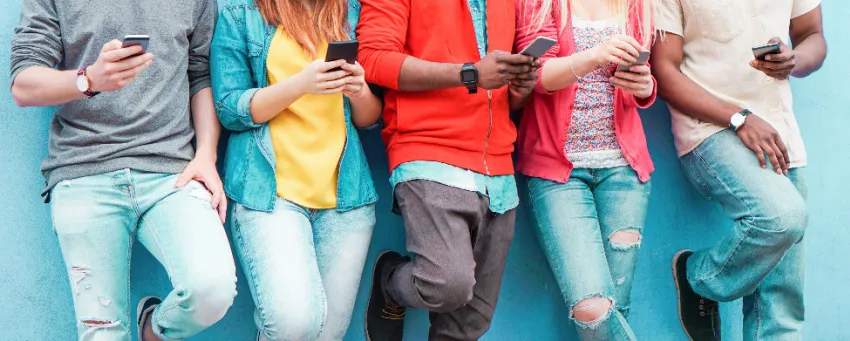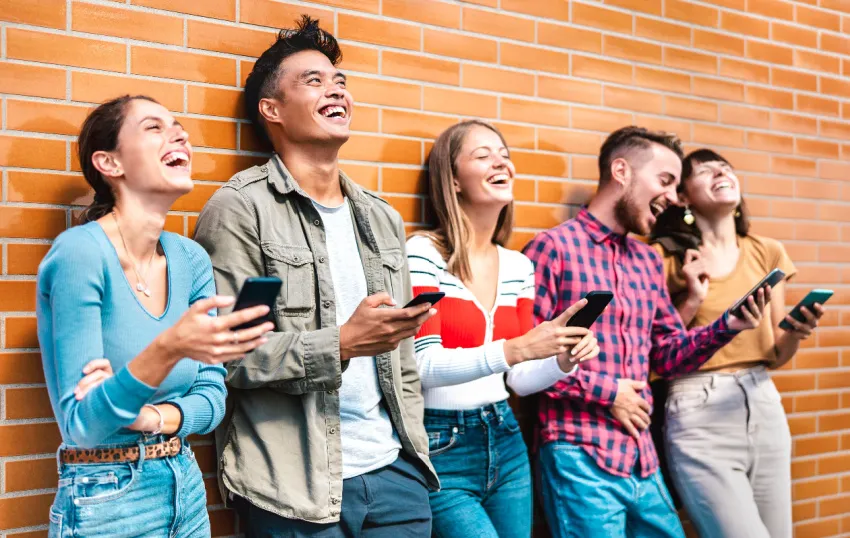In recent years, the rise of social media platforms such as Twitter, Facebook, Instagram, and YouTube have transformed the way we communicate, share, and interact with others. While the social media effect on college students offers numerous benefits, they also come with potential drawbacks, particularly concerning mental health. College students, in particular, are a group highly susceptible to the impact of social media on their mental well-being. Here we discuss the multifaceted relationship between social media and the mental health of college students, exploring both the positive and negative effects.

The Positive Side
Social media provides college students with an unprecedented opportunity to connect with peers, friends, and family members, especially those who are physically distant. It can serve as a valuable support system, fostering a sense of belonging and reducing feelings of isolation.
Social media platforms facilitate the exchange of information on academic resources, campus events, and opportunities. This accessibility can positively contribute to students’ engagement and overall university experience. In addition, students often use social media to showcase their talents, whether through art, writing, music, or other creative endeavors. This can boost self-esteem and provide a sense of accomplishment.
The Drawbacks
The constant exposure to carefully curated images and achievements on social media can lead to social comparisons, jealousy, and feelings of inadequacy among peers. Students may feel pressured to measure up to unrealistic standards, which can harm their self-esteem and mental well-being.
The fear of missing out on social events or experiences depicted on social media can induce anxiety and stress. This fear can be exacerbated by the constant stream of updates from peers. Recent research from the University of Texas has shown that getting fewer ‘likes’ on social media can elicit emotional distress among young adults. The validation these students are seeking but not receiving can increase depression and anxiety, which can lead to a cycle of rejection.
College students are not immune to online harassment and bullying, which can lead to depression, anxiety, and even suicidal thoughts. The anonymity of the internet sometimes emboldens individuals to engage in hurtful behavior they might not engage in offline.
Impact on Academic Performance
The social media effect on college students can also negatively impact academic performance. Excessive use of social media can lead to decreased focus and concentration on academic tasks and assignments, resulting in lower grades and academic performance.
The bright, blue light emitted by phone and computer screens prevents users from falling asleep at the proper times, which disrupts students’ sleep patterns. This leads to fatigue, reduced concentration, and overall academic struggles. The addictive nature of social media use also causes students’ focus and concentration to be diverted away from academics, and towards monitoring their social media accounts.

Coping Strategies and Solutions
Students and young adults in general should be prepared to understand the impact of social media use on their mental health. Below are several tricks that can be utilized to manage social media use in a health manner.
- Setting time limits and designated “unplugged” periods can help strike a balance.
- Encourage students to foster in-person relationships, engage in hobbies, and participate in campus activities that do not involve screens.
- Educate students about the potential pitfalls of social media, including the gap between online personas and real life.
- Promote digital literacy to help them critically assess and navigate the online landscape.
- Encourage students to be mindful of their social media usage and recognize when it starts to negatively affect their mental health.
The impact of social media on college students’ mental health is a complex issue with both positive and negative aspects. While these platforms offer valuable connections and resources, they also pose risks to students’ self-esteem, sense of belonging, and academic performance. By promoting mindful usage and offline interactions, as well as fostering digital literacy and resilience, universities and individuals can mitigate the potential adverse effects and harness the positive aspects of social media for the betterment of students’ mental well-being.
For university students having a difficult time balancing social media use and their mental well-being, check out the mental health services Continuum Outpatient offers which can help students overcome their challenges.
